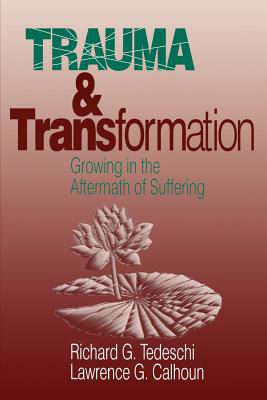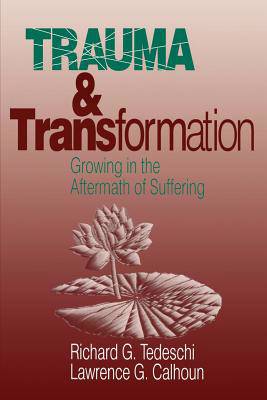
- Retrait gratuit dans votre magasin Club
- 7.000.000 titres dans notre catalogue
- Payer en toute sécurité
- Toujours un magasin près de chez vous
- Retrait gratuit dans votre magasin Club
- 7.000.0000 titres dans notre catalogue
- Payer en toute sécurité
- Toujours un magasin près de chez vous
Trauma and Transformation
Growing in the Aftermath of Suffering
Richard G Calhoun Tedeschi, Lawrence G Calhoun
Livre broché | Anglais
300,95 €
+ 601 points
Description
There are a growing number of books on the market focusing on the history, symptomatology, and treatment of trauma and PTSD. This book provides something unique as its purpose is to highlight the ′personal positive growth or strengthening that often occurs in persons who have faced traumatic events.′ As the book points out, this is a sadly neglected area in terms of research. . . . This book has something to offer to the layperson and those who have experienced a traumatic event as well as to the seasoned professional. It is written in an easily accessible style and, given the price of books these days, is also a good value for the money. --Gladeana McMahon in British Psychological Society Counseling Psychology Review "This is a useful book, especially for those involved with research on this important issue." --James Graves, M.D., in Readings: A Journal of Reviews and Commentary in Mental Health Unique in focusing on the positive outcomes of coping with crisis, this volume helps you to understand the process of growth after trauma and apply that knowledge to the counseling relationship. Sensitizing the reader to the pain experienced by people affected by trauma, the authors weave together literature from philosophy, religion, and psychology to form a model of active coping and transformation. An essentially cognitive framework gives conceptual context to the important changes in trauma survivors′ belief systems that the authors examine and upon which they build. Case examples and quotations from literary and religious sources as well as from the authors′ research and clinical work articulate the coping and growth process and cultivate compassion and understanding. At the same time, the authors′ findings and analysis of important research encourage researchers to more closely examine this type of personal growth. This volume provides new information and perspectives invaluable to all those in the helping professions, in a variety of counseling settings, as well as researchers and students in clinical psychology, psychology, nursing, interpersonal violence, and family studies. "At last someone has assembled and integrated the extensive literature on coping with trauma. The authors provide a thoughtful and creative analysis of the process by which survivors of trauma experience personal growth. They propose their own model of coping that incorporates a wide range of personality variables, coping strategies, tasks, cognitive processes, and social support. Chockfull of engaging case examples and suggestions for researchers and therapists, this is a must read for anyone interested in the human dimensions of surviving trauma." --Raymond M. Berger, Professor (retired), California State University, Long Beach
Spécifications
Parties prenantes
- Auteur(s) :
- Editeur:
Contenu
- Nombre de pages :
- 175
- Langue:
- Anglais
Caractéristiques
- EAN:
- 9780803952577
- Date de parution :
- 01-06-95
- Format:
- Livre broché
- Format numérique:
- Trade paperback (VS)
- Dimensions :
- 152 mm x 230 mm
- Poids :
- 294 g

Les avis
Nous publions uniquement les avis qui respectent les conditions requises. Consultez nos conditions pour les avis.






